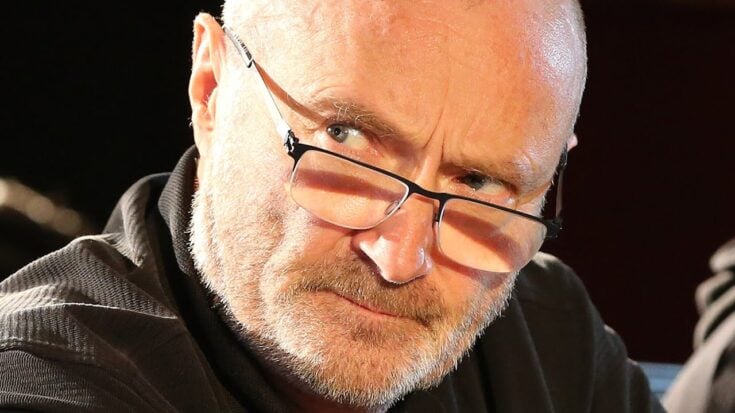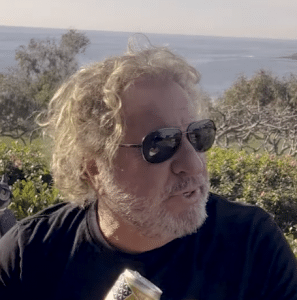When the Music Stopped: Rock Icons Who Retired Because of Health Issues

via Grunge / YouTube
Time is rarely kind to rock legends. The same energy that fuels decades of touring, late nights, and endless studio sessions often takes a toll that no encore can fix. For many of the icons who defined rock’s golden age, health eventually becomes the one force they can’t outplay. Their stories remind us that even the most enduring stage lights must dim, not from lack of passion, but from the realities of human frailty.
Dave Mason’s recent retirement marks one of those moments. After sixty years of performing, the former Traffic guitarist and solo artist announced in September 2025 that his time on stage had come to an end. A serious heart condition, followed by complications from infection, left him unable to continue his “Traffic Jam 2024” tour. In a heartfelt message to fans, he described it as “closing the curtain on 60 remarkable years of rock n’ roll,” a bittersweet farewell from a musician who once played alongside Hendrix and The Rolling Stones.
Mason’s departure is part of a growing pattern among classic rock’s elder statesmen—artists who have given everything to their craft and are now stepping away for their health. Their exits don’t just signal the end of personal journeys; they mark the quiet fade-out of a generation that built the foundations of modern rock. In this feature, we look at several legendary performers whose careers, like Mason’s, were cut short not by choice, but by the limits of the body that carried their music.
Phil Collins
During the 1980s, Phil Collins became one of the most recognizable figures in music. As both the drummer and lead vocalist of Genesis, and as a solo artist with a string of chart-topping hits, Collins ruled stages around the world. His voice and musicianship defined a generation, bridging the gap between progressive rock and polished pop. Even as the decades passed, he continued to tour and release music, maintaining a tireless dedication to his craft.
But behind the success, Collins faced physical challenges that gradually eroded his ability to perform. A severe spinal injury in 2007 damaged vertebrae and nerves, leaving him unable to play the drums—a devastating blow for a man whose rhythm had been the heartbeat of so many iconic songs. In later years, his son Nic took over drumming duties on stage while Collins sang from a seated position, determined to give fans everything he could despite his physical limitations.
In 2022, Collins officially announced his retirement from touring, closing a remarkable chapter in rock and pop history. While recent rumors about his declining health have circulated, his team has assured fans that he is still holding on. For millions who grew up with his music, Collins’ journey is a reminder of how even the most indestructible stars must one day rest the sticks and step away from the spotlight.
https://twitter.com/ladbible/status/1508069878003118085
Malcolm Young
AC/DC’s Malcolm Young may not have sought the spotlight, but his presence was the backbone of the band’s sound. As the rhythm guitarist and founding member, he provided the foundation upon which Angus Young’s electrifying solos stood. Through lineup changes, personal loss, and musical evolution, Malcolm remained the driving force behind one of rock’s most enduring acts.
However, the relentless pace of the rock life caught up with him. After years of heavy touring and battles with alcohol addiction, Malcolm took a break in the late 1980s to recover. He returned to the band stronger than before, but by 2010, his health began to falter again. When he stopped performing live, fans noticed his absence, and by 2014, it was revealed that he was suffering from early-onset dementia. His nephew Stevie stepped in on guitar, allowing AC/DC to carry on while Malcolm quietly fought his battle away from the stage.
His illness profoundly affected those who knew him best. Angus Young later shared that watching his brother’s decline was one of the hardest experiences of his life. Malcolm passed away in 2017 at the age of 64, but his riffs, discipline, and quiet leadership remain a cornerstone of rock history—a rhythm that still echoes even though its creator is gone.
Ozzy Osbourne
Few performers have embodied the chaos and charisma of rock ‘n’ roll like Ozzy Osbourne. As the frontman of Black Sabbath, he helped invent heavy metal itself, delivering haunting vocals and a theatrical edge that became a blueprint for countless bands. After his dramatic exit from Sabbath in 1979, he launched a solo career filled with both triumphs and infamy, never losing the unpredictability that made him a legend.
Yet the physical toll of decades on stage, coupled with a lifetime of excess, began to weigh heavily on him. Ozzy suffered multiple injuries over the years, including a major neck injury and long-term effects from Parkinson’s disease. Though he continued to release albums and even return to Sabbath for reunion shows, his ability to tour grew increasingly difficult. Still, he refused to quit completely, holding out for one last performance that would honor his legacy.
That moment came on July 5, 2025, at the “Back to the Beginning” festival—a one-day charity event that served as a farewell for both Ozzy and Black Sabbath. The concert was a celebration, filled with emotion and gratitude from fans and peers alike. Just weeks later, on July 22, 2025, Ozzy passed away at 76. His final bow was exactly what fans expected: raw, emotional, and unforgettable—a true rock send-off for the ages.











